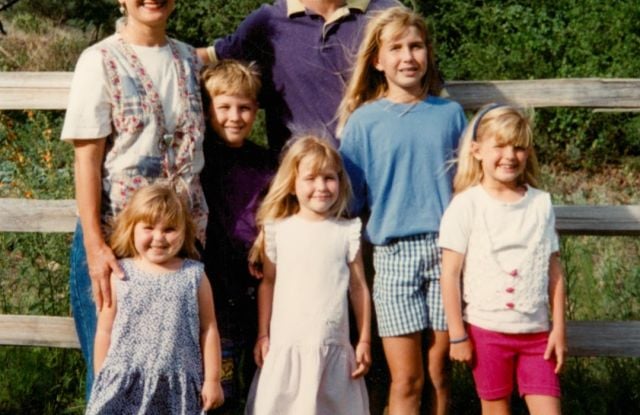Detoxing the helicopter parent

 Well, let’s look at Susan’s mom to illustrate what we’re up against. At a party, my friend told me about Susan. Susan is in her early 20’s and lives at home with her parents. When she didn’t answer her mom’s text messages last week, her mom became so concerned that she drove the hour distance to her daughter to find out what was wrong.
Well, let’s look at Susan’s mom to illustrate what we’re up against. At a party, my friend told me about Susan. Susan is in her early 20’s and lives at home with her parents. When she didn’t answer her mom’s text messages last week, her mom became so concerned that she drove the hour distance to her daughter to find out what was wrong.As it turned out, nothing was wrong with the daughter. The only real problem lies with the mom whose understanding of her role in her daughter’s life is way out of whack. Unable to do what any mother in nature does instinctively, she has slipped into a dysfunctional codependent relationship.
In doing so, she’s created a mess, an irresponsible daughter who remains tethered to the nest, unable to fly as God intended. So what’s the answer?
The best thing that could happen to the daughter is that she begins experiencing the pain of her own bad choices. As Herbert Spencer said, “The ultimate result of shielding men from the effects of folly, is to fill the world with fools.”
Sadly, the prospects for a young woman like Susan are poor; her character is almost fully formed. Her best hope is that her father will wake up to the devastating result of his failure to exercise authority and call a halt to his wife’s mothering run amok. It won’t be easy – detoxing never is. Susan is sure to scream for help. But if she is ever to move from adolescence to become a functioning adult, she has to start feeling pain.
If you’re a parent wrestling with this issue, the first step is to get on the same page with your spouse. Karen and I have a similar philosophy of parenting, so it hasn’t been hard for us, but I can’t help but cringe as I watch many of our friends fall prey to a broken cultural model where the mom is allowed to continue mothering well past the appropriate age. What makes this harder still is that often one spouse or the other knows in their gut that things should be different.
The next step is to apologize to your children for all the coddling and to inform them that you’ve decided to make a change. Let them know specifically how you will be changing your behavior and what changes you will expect them to make. Susan’s mom can say, “Honey, I won’t be worrying about you so much and I won’t drive an hour to find out how you are.”
The first time this happens – when you fail to swoop in and rescue them will likely produce yelps of pain and protest, so it’s best if you can refer back to a conversation where you said, “Now this is what you can expect …”
Naturally the younger the child, the greater the possibility of making a successful course correction. If your child is 15 and you’re still making her lunches, now would be a good time to stop. Ask your child to get a job. When she makes a mistake, refuse to rescue her.



I read yesterdays and todays blog with a lot of interest because thats what I see exactly everywhere in todays society with friends of ours and their children ,and in my own family with my brother is a great example. His daughter is 29 lives in another state but she cant get through the day with out talking to my brother at the least a half dozen times a a day and he does every thing for her and solves each and everyone of her problems and continually gets her out of her messes. For her there is no meaning to accountability. I talk about this frequently with him . I say how will she survive when you are not around anymore, and that you are not doing her any favors. But I think there is one key thing that plays into all of this and I believe its the lack of Jesus Christ and spirituality that as added to this increasing behavior , because where else to we learn about accountatbility etc .. We live in NY and all 3 of our children ended up in Little Rock AR and everyone continually ask us how can we do that them being so far away, but we know it is such a God thing that that it gives us such peace and Im constantly trying to share with others that they belonged to God first and theres a time as being a parent that you surrender them back to Gods care. We are extremely close to them and they know we will support them and be there with them through the wrong choices and the good ones but they know they have a accountability to God first as well as we do.Some of the most difficult conversations we have had with them is telling them that we would like to make everything alright for them take away their pain etc or fix their mistakes but we tell them that we love them unconditionally and nothing could ever change that and that we will see them through all their choices but that we too have to stand before God some day and we will also be held accountable. So I guess what I am trying to say we need to have a clear and strong relationship with Jesus Christ and that is the core solution to how we raise our kids and the peace you recieve from knowing they are in His care will far exceed anything we can do.
I wouldn’t say you need to apologize to your grown child, but explain that going forward you will be approaching things differently.
Incidentally, in my work with youth, I am seeing a lot more dads with this type of behavior. It’s hard to minister to youth who have every little thing done for them. I rarely see a kid or youth who knows how to go out and explore or spend time working things out with other kids. It’s all non-stop organized activities. We are losing our free thinkers.